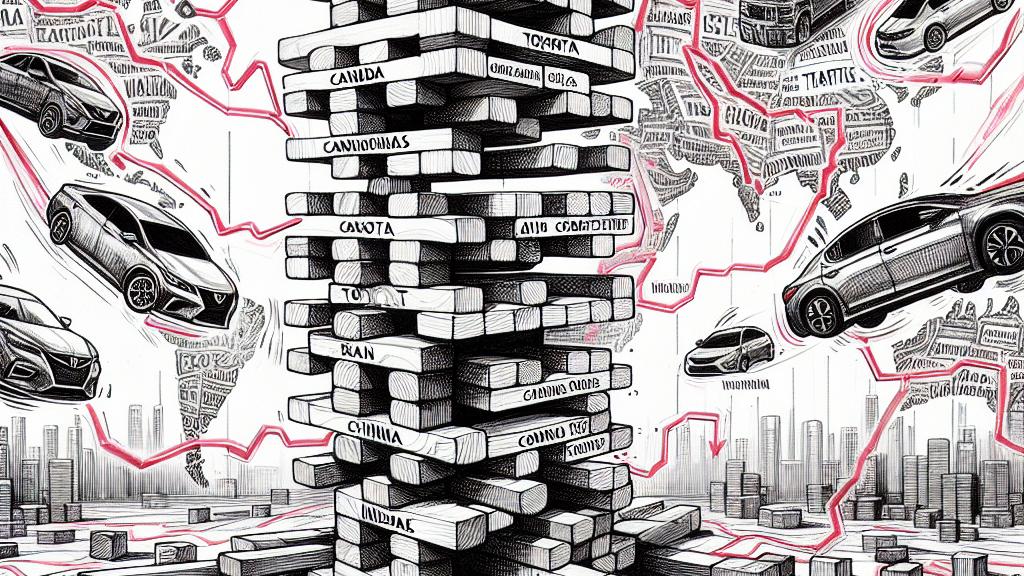Understanding the Impact of Tariffs on Global Auto Stocks
Overview
- Trump's tariffs have sent shockwaves through the global auto stock market, leading to a significant decline in share values.
- Manufacturers in North America are facing a perfect storm of rising costs and operational challenges.
- With the EU potentially next in line for tariffs, the entire automotive landscape could shift dramatically.

The Immediate Shockwave of Tariffs on Automakers
Recently, President Donald Trump made headlines by imposing a series of tariffs on imports from Canada, Mexico, and China. This bold step, which includes a staggering 25% tariff on goods from Mexico, has sent the automotive world into a tailspin. For instance, shares of major players such as Toyota and Nissan plummeted over 5% in just one day. This rapid decline reveals an unsettling reality: the global auto industry is intricately woven into a network of supply chains that spans multiple countries. Think of it like a Jenga tower—remove one piece, and the whole structure may start to wobble. The implications of these tariffs are massive, threatening not only profits but also the very fabric of jobs that depend on a stable supply of vehicles and parts.
The European Union on High Alert
As Trump eyes the European Union with his tariff wand, the stakes couldn't be higher. Imagine the scenario: if tariffs hit the EU, brands like Volkswagen and BMW will not only see production costs soar but also face dwindling sales in the U.S. market. A recent analysis suggests that such tariffs could inflate vehicle prices, making them less appealing to American consumers. Consequently, this could create a ripple effect that leads to major layoffs and factory closures in Europe. To put it simply, the elaborate dance of trade that has historically benefited both sides is now threatened, and this jeopardizes jobs across the Atlantic!
Escalation and Retaliation: What Lies Ahead
With Canada and Mexico preparing their own retaliatory measures, we stand at a crossroads of economic uncertainty. For example, Canada could target U.S. agricultural exports, sparking a tit-for-tat trade war that does more harm than good. The automotive sector, relying heavily on intricate supply chains for parts, is bound to be caught in the chaos. Recent studies indicate that tariffs could significantly hinder production and sales, pushing consumers towards alternatives. Here’s a striking point: effectiveness in negotiations is crucial. Auto manufacturers are urging collaboration and dialogue, emphasizing that free trade and open markets are essential for innovation and consumer interests. Without proactive measures, we risk a spiral of heightened costs for everyone—businesses and customers alike.

Loading...